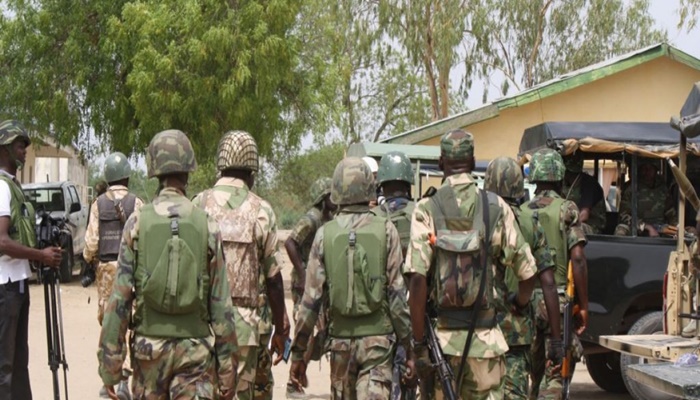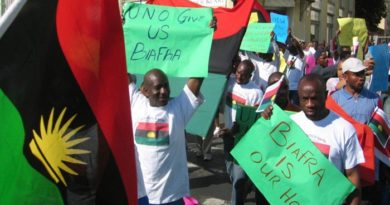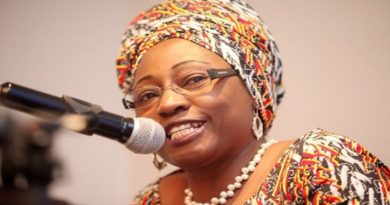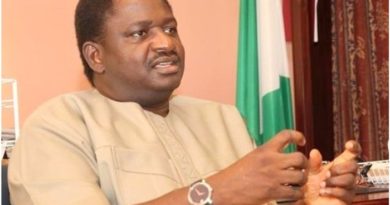Buhari, military operations & battle against insecurity
By Dr Christopher Yakubu
Since President Muhammadu Buhari assumed the reins of leadership in May 2015, the army has carried out quite some operations as it continues to protect the nation’s territorial integrity.
Operation Lafiya Dole (North East Nigeria)
Operation Lafiya Dole is the army’s code name for the war on terror in Nigeria’s northeast. This code name literally translates to ‘Peace by all means’ in Hausa.
The operation was set up to counter terrorism and insurgency. It was later expanded to specialized operations including “Operation Crackdown”, “Operation Gama Aiki” and “Operation Safe Corridor.”
Operation Gama Aiki was launched to clear remnants of Boko Haram from northern part of Borno State and the border regions with Chad and Niger Republic. It is a joint operation with the Nigerian military and the regional Multinational Joint Task Force. In fact, Gama Aiki is targeted at terrorists fleeing “Operation Crackdown.”
Chief of Army Staff, Major General Tukur Buratai renamed the code name for the war on terror from “Operation Zaman Lafiya” to “Operation Lafiya Dole” in July 2015 signalling his determination to attain peace by force in the North East.
The Current Theatre Commander of Operation Lafiya Dole is Major General I. Attahiru. His posting came up just as the Nigeria Army embarked on a massive restructuring of its major commanding posts and units around the country. The operation has been one of the fiercest owing to the fight against terrorism, but due to reorganisations carried out at the theatre command, it became stronger and more effective in its combat against insurgency.
Much success has been recorded since the beginning of this operation. Troops under the Operation LAFIYA DOLE have continued to neutralize several Boko Haram insurgents, make arrests, free abducted hostages and discover bomb making factories. The development has assisted to reduce spate of suicide bombing and insurgents’ attacks.
The Operation has been working in conjunction with The Multinational Joint Task Force (MNJTF), a combined multinational formation, comprising units, mostly military, from Benin, Cameroon, Chad, Niger, and Nigeria. It is headquartered in N’Djamena and is mandated to bring an end to the Boko Haram insurgency. Threats of insurgency due to porous borders
Despite the numerous political, logistical, technical and financial challenges it has been facing, the MNJTF has been supporting the war, although more should be done urgently by MNJTF to safeguard our porous borders.
The 2017 Global Terrorism Index (GTI) indicates that killing of innocent people by the Boko Haram insurgents in the North east decreased by 80 per cent. According to the report, Nigeria also recorded the biggest decrease in terrorism worldwide, with 3,100 fewer people killed compared to 2015
The operation has also excelled in working in synergy with UN and other development organizations to address the humanitarian crisis in the North-East region. Such working collaboration guaranteed the success of the counter-insurgency campaign in the north east of Nigeria.
On 3rd October, 2017, Chief of Army Staff Lieutenant General TY Buratai commissioned the 7 Division Human Rights Office at Maimalari Cantonment in Maiduguri. The human rights desk was instituted to promote good human practices and boost civil-military relations in the counter-insurgency campaign of the Armed Forces. It is also designed to educate soldiers on fundamental human rights issues to guide them in the discharge of their duties.
Operation Awatse (Southwest Nigeria)
Awatse is a Hausa name to say ‘scatter’. The Operation Awatse was to carry out intensive operations to ensure the clearance of militants.
The operation started in July 2016 and was designed to dismantle the operational bases of pipeline vandals and militants in the coastal areas of Southwest Nigeria.
Under the command of the Flag Officer Commanding, Western Naval Command, Rear Adm. S.A.G Abbah, formerly Navy Secretary, riverine communities in
***Yakubu is Executive Director, Coalition of Civil Society for Peace and Governance (COSPAG)




